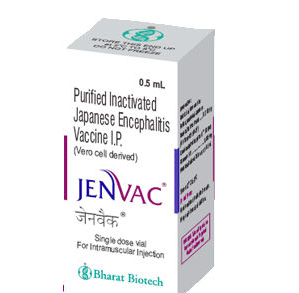Indigenous Japanese encephalitis vaccine launched
 New Delhi, Oct 4 : India's first indigenously developed Japanese Encephalitis (JE) vaccine was launched by Health Minister Ghulam Nabi Azad Friday.
New Delhi, Oct 4 : India's first indigenously developed Japanese Encephalitis (JE) vaccine was launched by Health Minister Ghulam Nabi Azad Friday.
The vaccine JENVAC - to fight against the mosquito-borne viral infection - has been jointly developed by scientists of National Institute of Virology (Pune), Indian Council of Medical Research (ICMR) and Bharat Biotech Ltd.
Launching the vaccine, Azad said that JENVAC is a completely indigenous vaccine and an outstanding example of public private partnership (PPP).
Japanese Encephalitis is the leading cause of viral encephalitis in Asia. Mild infections occur without apparent symptoms other than fever with headache. More severe infection is marked by quick onset, headache, high fever, neck stiffness, stupor, disorientation, coma, tremors, occasional convulsions (especially in infants) and spastic paralysis.
Terming the Acute Encephalitis Syndrome (AES) as a serious public health challenge for India, Azad said: "Of the more than 100 viruses and other agents that can cause this syndrome, about a dozen are reported from India. Beginning with one case in 1955 in Vellore in Tamil Nadu, the JE virus has spread to over 171 districts in 19 states."
Till now, a vaccine imported from China was being used in India.
The health minister said it is not only the first fully indigenous vaccine, but is also based on an Indian strain. "Therefore, it is expected to improve the efficacy besides availability and affordability".
Azad said the country needs around 10 million doses of the vaccine for comprehensive coverage.
The union cabinet had given approval for a national programme for prevention and control of JE with an outlay of more than Rs. 40,000 million.
This programme is now being implemented in 60 priority districts for a period of five years from 2012-13 to 2016-17 by the concerned ministries. Interventions are being focused on five states namely Assam, Bihar, Tamil Nadu, Uttar Pradesh and West Bengal.(IANS)